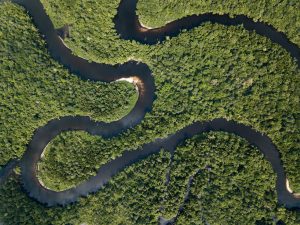Suwanna Gauntlett arrived in Cambodia in 2000 and through Wildlife Alliance has sought to protect the rainforests in the pristine Cardamom National Park, where she has trained rangers for the Special Forestry Task Forces and the Royale Gendarmerie Khmer.
Lately, however, her work has attracted controversy amid reports of bullying and intimidation of local farmers by wildlife officers, resulting in at least eight complaints to officials and a human rights NGO detailing alleged abuses since 2019.
Those complaints have been attributed to an as yet unpublished report by Human Rights Watch, which is expected to be released early next year.
Gauntlett says there has been no bullying by her rangers in the Cardamom National Park but adds that outsiders had moved into the nearby Areng Valley in Koh Kong province after a planned dam was scrapped and the government had requested Wildlife Alliance to “restore order.”
They included Chinese workers who had been employed on sugar plantations and in the hydropower industry. She says there are no issues with genuine local farmers who have lived in the area since the late 1970s, when the Khmer Rouge were ousted from power.
A bigger issue is that the allegations also go to the heart of the carbon credit scheme REDD+ project and carbon offset certifier Verra, a relationship currently under review.
Gauntlett spoke with The Diplomat’s Luke Hunt about those allegations and initial reports that appeared in The Guardian. She insists most journalists do not understand the complex issues that surround her work.

































